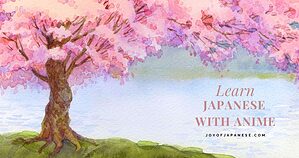There may have been times when you heard J-pop music playing in the background and liked it. Or you are already a fan of some Japanese groups and artists.
Whatever your motivation for learning Japanese, songs, and music from Japan have become a global phenomenon in recent years thanks to the catchy melodies from various singers and composers.
If you wish to improve your Japanese, you’re in luck. Using the right path, you can learn the language more efficiently with J-Pop. After all, music and songs are an amusing way to study while having joy.
But how does it work? What are the correct method and steps to listen to songs to reach Japanese fluency?
In this article, you’ll find everything you need to know about using songs, J-pop, and music to teach yourself the lovely Japanese language. Then, you can become a fan of Japan’s pop and music industry and speak more Japanese.
Let’s begin.
TABLE OF CONTENTS
- Informal learning through songs and music
- Will Japanese songs help you improve your language skills?
- How exactly can Japanese music help?
- Tips and tricks to learn Japanese from songs
- The world of J-pop and how it can help
- Top songs and bands in Jpop
- Final Words on learning Japanese with Music
Informal learning through songs and music

Informal learning is a far less organized manner of getting knowledge. It may happen at any moment and in any location.
This kind of education can happen on a bus, at a restaurant, or even at a karaoke bar. And there is no book or set of precise rules to follow. That’s why we often call it accidental learning since it is random and unplanned.
When learning a foreign language for the first time, the focus is on being familiar with the language. Examples include grammar structure, pronunciation, and remembering large amounts of new vocabulary.
And to do this, students are urged to “study hard” by completing all necessary textbook exercises and practicing speaking and reading.
According to evolutionary experts, our ancestors may have evolved a reliance on music to contact. This is because they come from arboreal creatures — tree-dwellers who communicated over the canopy.
Listening to music is an excellent way to stimulate your brain. Scientists have claimed that they can see the active parts of the brain light up in MRI images when people listen to music.
Constantly evolving, always with new music and albums to explore. But did you know it’s also an excellent method for learning a new language?
Yes, your favorite band may assist you in passing language exams like the Japanese Nihongo Achievement Test (NAT-TEST). As a result, you will become proficient much more quickly!
As a language student, pay attention to the importance of music in your studies. It can be a way to get to grips with pronunciation, memorize all the complex words, and pick up slang, terms, and phrases.
There are several ways that music may benefit your language learning. Of course, you may also listen to anything you want, for as long as you like!
Will Japanese songs help you improve your language skills?
Music is an ideal method to learn about the culture. You can learn a lot about a place by listening to its music. Japanese is no different!
Besides practicing Kanji by writing it down many times in notebooks, you can explore many audio resources. E.g., podcasts, audio lessons, Karaoke, learning through Japanese Anime, TV shows, movies, etc.
Do you know Japan has the world’s second-largest music market?
Japan boasts a diverse spectrum of traditional and contemporary musical styles. As an effect, Japanese music is a terrific and pleasant way to learn more about a mesmerizing country’s culture, traditions, and history.
How exactly can Japanese music help?
Considering Japanese is a hard language, Music may help you learn a language in various ways. This includes speaking, listening, reading, writing, new words, and understanding grammar.
Let’s find it all.
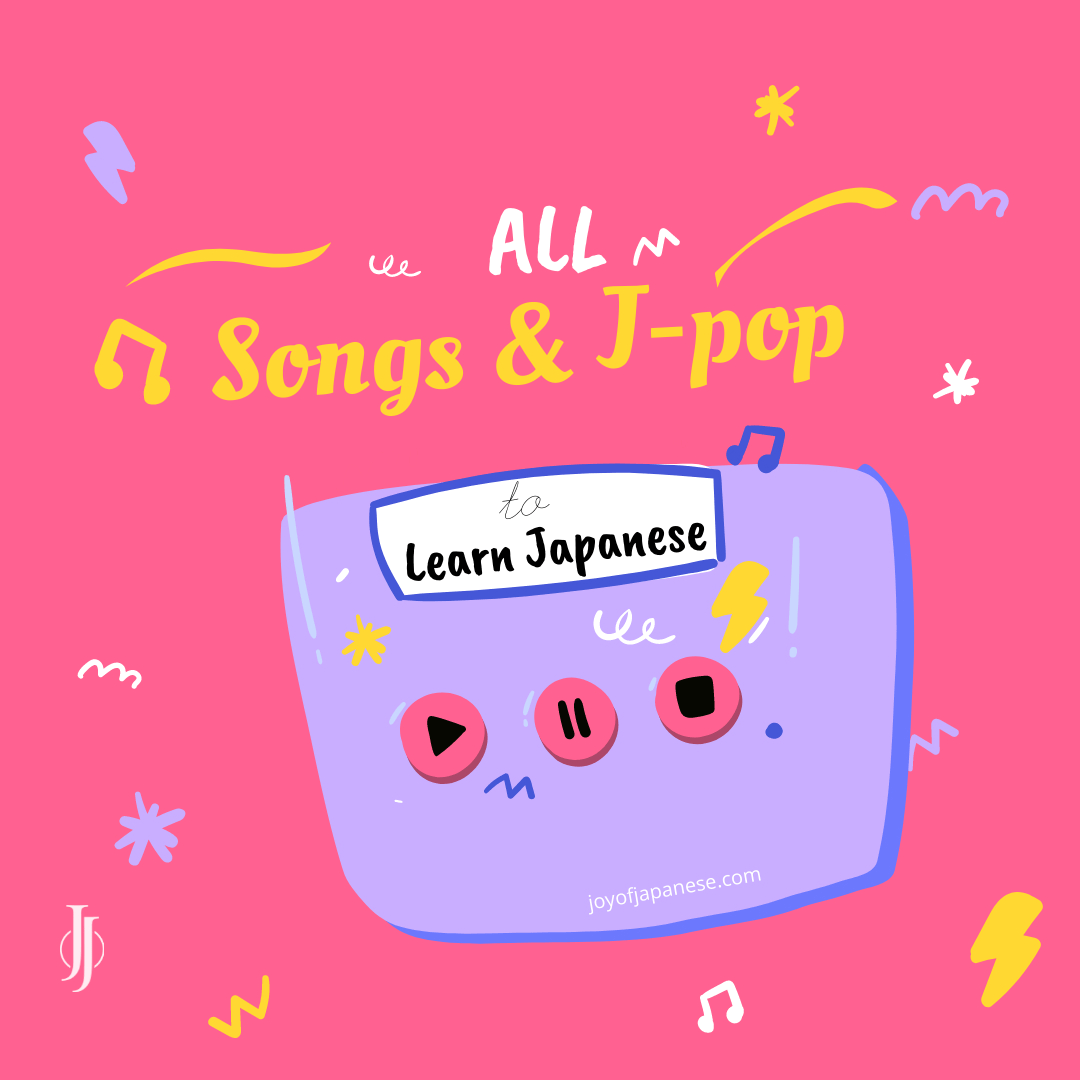
(i) Enhancing Japanese listening and speaking skills
First, there are listening skills and pronunciation — you can hear authentic Japanese. It can help you become used to the language’s varied sounds.
It helps you pick up on the little riffs between Japanese sounds if you’re a beginner. Then, with each song, you’ll notice that your listening abilities sweeten!
You’ll grow better at creating these noises as your listening skills develop. As a result, your accent and pronunciation will enhance as well!
You will learn more if you pay attention. It will also assist you in speaking Japanese if you get acquainted with spoken Japanese’s natural rhythm and tempo.
Overall, it aids in developing speaking skills, which is necessary if you intend to make a Japanese language career. For instance, when you sing along to your favorite Japanese music, your tongue and mouth grow accustomed to making noises they’ve never made before.
Keeping up with the beat and rhythm of music trains you to talk more quickly and naturally in conversation. You strengthen memory through repetition. What better way to remember something than to hear it repeatedly?
No matter where you live, listening to words in song form helps you adapt to spoken Japanese pronunciation and intonation.
Music indeed helps you enhance your listening abilities. But regularly speaking Japanese may take a lot of work, depending on where you live.
(ii) Improves Japanese reading and writing ability
Many Japanese language learners feel at ease while dealing with the language’s written form but struggle with auditory comprehension.
The vocabulary — learning new Japanese words through music is much more likable and faster.
Music is simpler to recall, and tunes are appealing and easy. Further, repeating language aids in retaining new words. You may learn a lot of new terms by looking at the lyrics.
Particularly informal words and casual wording that you won’t discover in your Japanese classes.
You may also learn regional terms, which will help you quickly improve your language talents. So, it can help you pass the Japanese Language Proficiency Test (JLPT). All the while having a good time!
Grammar is reinforced by music. The lyrics support understanding of the structure. So, a song title or verse may help you identify where to position the particle when expressing possession.
For example, the new word or grammar structures will remain in your memory after hearing a song’s chorus several times.
There are more opportunities to practice reading. E.g., when viewing music videos for study, you may use subtitles to read the Japanese you hear. It helps you recall the language better and increases your mastery.
There will also be a picture of an object identified with the written word for some beginner-level tracks below. But first, check if the writing is in Kanji, Hiragana, or Katakana.
Depending on your reading capability, you can read the word aloud as you pronounce it. You may stop the movies to improve Japanese and sound out the word in the 3 writing systems of Japanese.
Tips and tricks to learn Japanese from songs
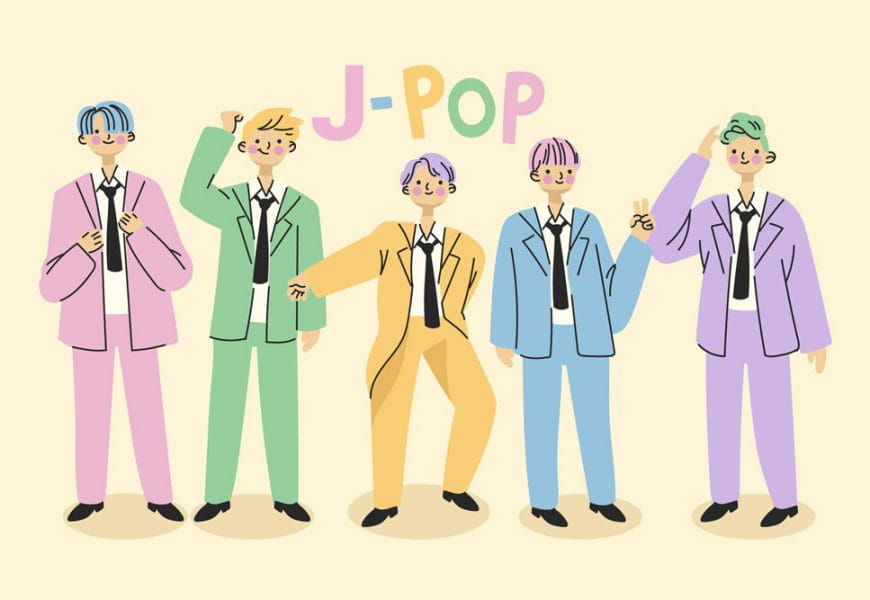
Taking a deeper look at Japanese song lyrics is one technique of using music. When picking a theme, the more catchy it is to you, the better. Try taking notes on what you find. Are there any new terms or phrases?
From Reddit to Google to language forums, use the internet to get solutions to your questions. Plus, other online dictionaries can be found – have a look!
Also, list the new terms you’ve learned and try incorporating them into your writing.
If you’re a more serious fan, the internet may also help you connect with people who share your interests. Because Japanese popular culture has such a large global following, it’s pretty simple to become immersed in it.
Let’s start by listening to Japanese versions of familiar music.
Even children’s songs, films, or TV shows for Japanese learners are perfect places to start. These versions are readily available online and help to acclimate to Japanese music.
Repetition helps, and you can focus on different parts of the song every time. This can be the bridge, chorus, and any other repeated elements. You can finally master all the sounds and syllables by reciting songs like this.
It’s a fantastic approach for both improving listening and reading abilities. So feel free to sing along and enjoy yourself.
Don’t worry if you need to comprehend every word when you first listen. Instead, concentrate on getting the song’s general meaning. Then, you may go back and listen again or print off lyrics to hear to improve your understanding.
As they say, practice makes perfect, and immersing oneself in Japanese music, songs, and J-pop will pay off in the long run.
It is also beneficial to listen to your favorite tunes in the background. You can do it while cooking, traveling, or doing housework after you’ve gotten into the swing.
3-Steps to use songs to improve Japanese
First, pick a song you like that is easy enough to sing. While it may seem like a no-brainer, you can learn much more from the music you’ll enjoy listening to.
Finding a favorite genre or artist among various Japanese music styles shouldn’t be challenging.
As a beginner, it is best to start with slower-paced music. The children’s music is a superb resource for knowing the basic vocabulary, phrases, and pronunciation.
YouTube or apps for Japanese learners with a “slow playback” feature can help. It is helpful if you prefer listening to fast tracks, rap, and modern pop music.
Last but not least, look up the words. Make sure you understand a song before listening to it repeatedly.
In the beginning, this is fine, so you get used to the singer’s voice and diction. Later, it will be necessary to look up the meaning of the words.
The world of J-pop and how it can help
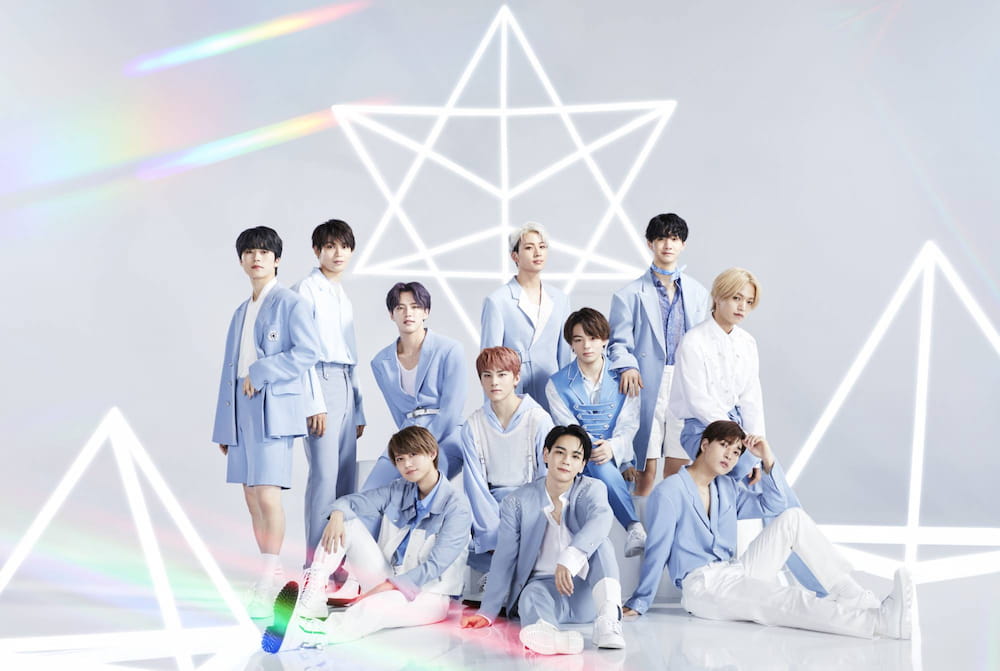
Although J-Pop refers to Japanese pop music, it encompasses a wide range of genres that aren’t usually classified as “pop.” Rock, R&B, and hip-hop are examples of this.
Around the late 1980s and early 1990s, the phrase “J-Pop” became popular. Yet, the music that J-Pop singers are inspired by arrived in Japan because of Western influences, particularly during World Wars I and II.
J-pop music possesses all the Japanese language characteristics. It is for optimal intelligible information. So, you have a basic melody that is repetitious, catchy, and easy to remember.
The songs’ meanings aren’t overly convoluted; you can interpret them because they all include lyrics and English translations.
J-pop songs are also more approachable for learners because of the fun piece.
While learning Japanese takes time and effort, having some humorous, lively, and dramatic music may make it much more satisfying. Listening to Japanese pop music is also an enjoyable and relaxing pastime.
Further, karaoke establishments are well known for providing on-screen lyrics participants may use as a guide if they are unfamiliar with a song’s lyrics.
You’ll often see unfamiliar Kanji with the Hiragana, and Katakana added on top. This serves as a learning function (also referred to as Furigana).
Most J-pop songs have been turned into karaoke videos. So you can learn to sing along to or hold your own at-home karaoke party on YouTube or elsewhere.
The choruses repeat themselves, and the characters appear on the screen repeatedly until you recall what they look like.
You’ll likely know Kanjis the next time you see them in the wild. You may not recognize them from memory, but you will remember them.
Because it uses slang, metaphors, unique grammatical points you may or may not have learned in class, everyday language use, and much more. Listening to J-pop is very beneficial for Japanese language learners.
Those are valuable skills, and you won’t discover them in a textbook.
Singing J-pop out loud helps you learn lyrics and improves your speech’s fluidity. With each song you master, you’ll grow closer to fluency.
This sing-along period reinforces your speaking practice. It means your lips are rehearsing the movements required to say those words.
The more you practice, the simpler it will be to utter the terms, and the faster you can remove them from your lexicon. Thus, to learn Japanese thoroughly, it is essential to be exposed to these linguistic patterns.
Top songs and bands in Jpop
You probably already know Hikaru Utada, Arashi, Namie Amuro, GACKT, and Namie Amuro.
But what about other famous artists like AKB48, BabyMetal, Kyary Pamyu Pamyu, Hatsune Miku, Kenshi Yonezu, Official Hige Dandism, and many more?
You’re about to discover a lot more impressive stuff. Here are some great JPop songs to learn Japanese are:
(i) Hikaru Utada
Hikaru Utada, born in the USA, is one of the most well-known and enduring figures in modern Japanese pop music. Further, she has earned international success as a famed and best-selling musical artist in Japan.
Her debut album, First Love, published in 1999, still maintains the record for the best-selling album in Japan. Her music is influenced by Western pop and R&B.
(ii) Arashi
This boy band debuted in 1999 and has a long list of songs under its credit. It is another long-standing powerhouse in the current J-Pop.
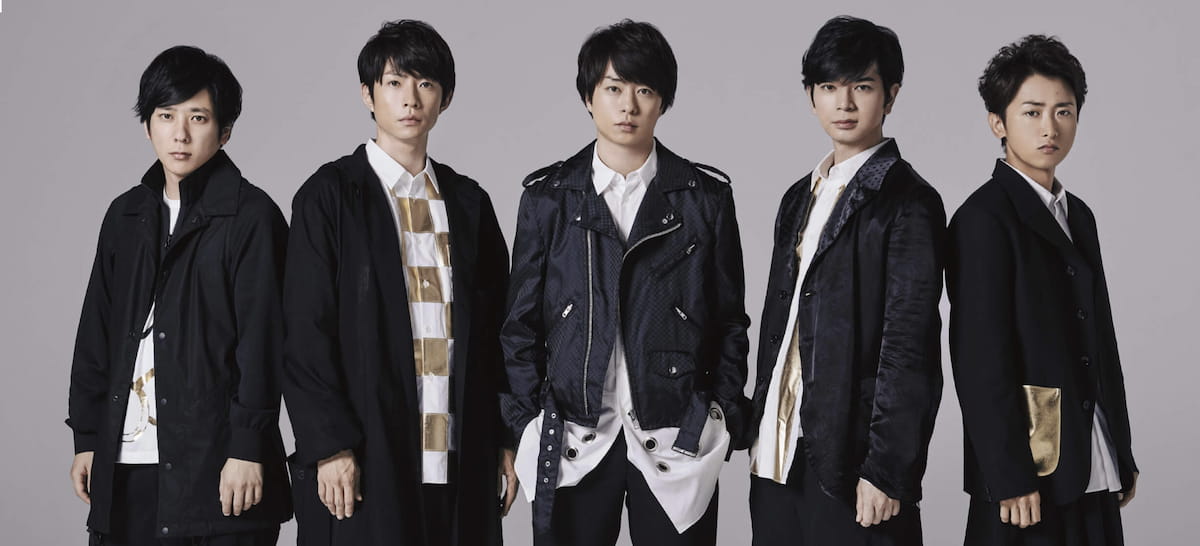
Their most incredible hits compilation CD became the best-selling album in the world in 2019, surpassing Taylor Swift and BTS. Their music is primarily pop-oriented.
(iii) Namie Amuro
Namie Amuro would be a Japanese counterpart to Madonna if you had to name one. Her meteoric ascent to stardom in the early 1990s earned her the moniker “Queen of Japanese Pop” and “Japanese Madonna.”
Despite her retirement from the music industry in 2018, she is one of Japan’s best-selling musicians. She was also recognized as a recording artist, producer, dancer, model, actress, and entrepreneur.
(iv) Ayumi Hamasaki
Ayumi Hamasaki’s career strengthened after her debut in 1998, earning a dedicated following with her self-written songs and trend-setting aesthetic. She is a songwriter, singer, and former actress.
She has over 30 albums and is the subject of a biographical television drama. By 2019, Hamasaki had sold over 60.94 million units. This makes her an all-time best-selling Japanese solo artist.
(v) GACKT
Gakuto Oshiro, sometimes known as Gackt, is a well-known Japanese artist who has been active since the early 1990s. He’s a rocker, yet he’s not afraid to sing in various styles.
His music has been included in video games, anime, and television shows. In 2007, he got to the top of the Oricon charts with his first and only single, “Returner.” Besides, he sold more than 10 million albums as a solo artist.
(vi) AKB48
Akihabara is the name of the Tokyo area where the group’s theater is located, where the AKB48 term originates. One of the highest-earning performers in Japanese music is this female idol trio.
Since its inception in 2005, they have sold millions of albums. Their music is primarily pop in nature. AKB48 has occupied at least two top spots on the Oricon Yearly Singles Chart between 2010 and 2020.
(vii) Babymetal
Not everyone is a fan of heavy metal. Yet, Babymetal has exposed metal music to those who would never have heard it. This is a Japanese kawaii metal band comprising Moa Kikuchi as “Moametal” and Suzuka Nakamoto as “Su-metal.”
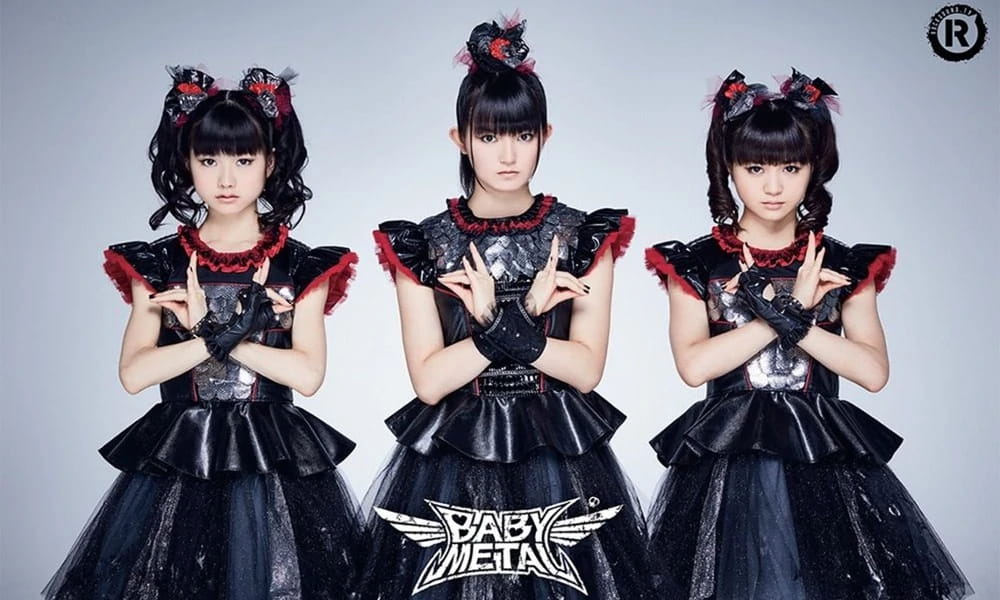
It has earned international popularity with its distinctive theme and style, which combines kawaii with metal. This J-band has undertaken several tours, and most of its musical trips have taken outside Asia.
Final Words on learning Japanese with Music
This is only the beginning of learning Japanese with music. You can explore an endless world of songs and J-pop more and more to find your best playlist.
These Japanese songs will have you dancing and singing, get a glimpse of the culture of Japan, and help you learn and improve your language.
Don’t forget that you only need to understand some parts of the song the first time you listen to it! So first, know about the rhythm and beat. Then, after listening to it a few times, you can easily decipher its meaning.
They will help you learn unfamiliar words and Japanese written characters and better understand sentence formation. Plus, you become more articulate with pronunciation and improve your speaking ability.
There you have it — a simple, entertaining, textbook-free way to study Japanese. So begin singing along and engage yourself in the enchanting world of Japanese music and culture.
Do you have any questions or want to share your love for J-pop and Japanese songs? Write in the comment section below!




